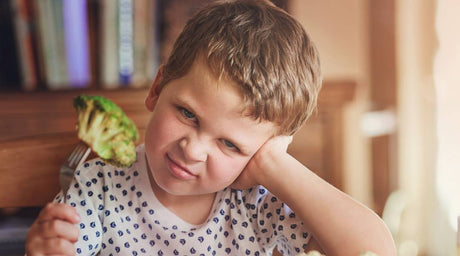Nurturing Emotional Growth During the Holidays
The journey of child development is rich and multifaceted, with emotional growth playing a crucial role. This aspect of development encompasses the ability of children to understand, express, and manage their emotions, as well as to empathize with the emotions of others.
Nurturing emotional intelligence in children lays the groundwork for their future interactions, relationships, and overall mental well-being. It is as vital as their physical and intellectual growth, shaping them into well-rounded individuals.
The Holiday Season: A Time for Emotional Enrichment
The holiday season, with its festive atmosphere, family gatherings, and traditions, offers a unique platform for fostering emotional growth in children. This time of year is replete with opportunities for teaching empathy, generosity, gratitude, and resilience. In this article, we will delve into how the holidays can be used as a valuable tool for nurturing emotional skills in children.
From the joy of giving and receiving to managing expectations and handling disappointments, the holiday season is ripe with teachable moments that can significantly contribute to a child’s emotional development. Let’s explore how these festive days can be transformed into lessons of the heart.
Understanding Emotional Growth
Defining Emotional Growth in Childhood
Emotional growth in children refers to the progression and refinement of their ability to feel, understand, express, and manage a wide range of emotions. This growth is marked by various developmental milestones, such as the first signs of empathy, understanding and adhering to social norms, and the ability to handle more complex emotions like frustration, disappointment, and joy.
Emotional milestones are as significant as physical ones, like walking or talking, as they lay the foundation for a child’s future emotional wellbeing and social interactions.
The Critical Role of Emotional Intelligence
Nurturing emotional intelligence from a young age is vital in raising children who are emotionally healthy and socially competent. Emotional intelligence involves self-awareness, empathy, emotional regulation, and interpersonal skills. It equips children with the resilience to face challenges and adapt to various social situations.
Encouraging emotional intelligence helps in developing a child’s ability to form healthy relationships, communicate effectively, and empathize with others. It forms the core of not just personal success and happiness, but also academic and professional achievements, making it an indispensable aspect of holistic child development.
The Holiday Season as a Catalyst for Emotional Growth

Embracing the Emotional Richness of the Holidays
The holiday season, with its unique blend of festivities, traditions, and family interactions, offers a fertile ground for the emotional development of children. This period is characterized by a range of experiences and emotions, from the excitement of anticipation to the joy of togetherness, and sometimes the disappointment of unmet expectations.
Each of these situations presents opportunities for children to learn and grow emotionally. The holidays can teach children about the value of family bonds, the joy of giving, the warmth of gratitude, and the strength in resilience.
Holiday Experiences as Emotional Milestones
During the holidays, children are exposed to various emotional learning experiences. For instance, participating in family traditions can instill a sense of belonging and identity, fostering social and emotional grounding. The act of giving and receiving gifts can be a lesson in empathy and gratitude, helping children to think about others' feelings and express appreciation.
Furthermore, navigating the highs and lows of holiday excitement, such as coping with the wait for a special day or handling the emotions of not receiving a desired gift, teaches children about patience, emotional regulation, and adaptability. These experiences, wrapped in the festive spirit of the season, provide valuable lessons in emotional maturity and social interaction.
Family Dynamics and Emotional Development

The Impact of Family Interactions on Emotional Growth
Family dynamics play a crucial role in the emotional development of children, particularly during the holiday season. This time often brings extended family together, presenting children with diverse social interactions and learning opportunities.
The way family members communicate, resolve conflicts, and show affection sets the tone for how children develop their emotional responses and coping mechanisms. Family traditions, be it storytelling, cooking together, or decorating the home, provide a sense of security and belonging, aiding in the emotional growth of children.
Crafting a Supportive Emotional Environment
Parents can foster a supportive and nurturing environment during holiday gatherings by encouraging open and positive communication. It's important to model empathy and understanding in family interactions. Encourage children to express their feelings and thoughts, and validate their emotions, whether it’s excitement, nervousness, or disappointment.
Create an inclusive atmosphere where each family member, including children, feels heard and valued. Activities that promote togetherness, like collaborative games or group discussions about what everyone is thankful for, can enhance emotional connections and provide children with a strong emotional foundation.
Managing Holiday Stress and Emotions
Holidays can also be a time of stress, with busy schedules and high expectations. Parents can help children navigate these emotions by setting realistic expectations and maintaining routines as much as possible. It's also beneficial to prepare children for potential changes or stressful situations they might encounter during family gatherings.
Teaching them simple stress-relief techniques, such as deep breathing or taking quiet breaks, can be invaluable. Remember, the goal is to create holiday experiences that are enjoyable and emotionally enriching for the entire family.
Empathy and Generosity: Lessons of the Heart
Cultivating Compassion During the Holidays
The holiday season, with its spirit of giving and sharing, provides a perfect backdrop for teaching children about empathy and generosity. These are more than just desirable traits; they are essential components of emotional intelligence and social interaction.
Empathy, the ability to understand and share the feelings of others, is especially poignant during this time, as children witness various forms of kindness and giving. The holidays offer numerous teachable moments where parents can illustrate and encourage empathetic behavior, helping children to develop a deeper understanding of others' emotions and perspectives.
Encouraging Generosity Through Holiday Traditions
Generosity is another emotional skill that can be nurtured during the holiday season. Involving children in the process of selecting and giving gifts, or participating in charitable activities, can teach them the joy and importance of giving. Parents can encourage children to choose gifts for family members or friends, guiding them to think about what the recipient might appreciate.
Participating in community service or donating to those in need during the holidays can also help children understand the impact of generosity on others. These activities not only cultivate a sense of altruism but also help children to develop gratitude and appreciation for what they have.
Integrating Empathy and Generosity in Daily Activities
Beyond these specific holiday activities, parents can integrate lessons of empathy and generosity into daily interactions. This can be as simple as encouraging children to share toys during playdates or expressing thanks to each other for small acts of kindness.
Discussions about how certain actions make others feel, or why it’s important to help those in need, can reinforce these concepts. By consistently modeling and encouraging empathetic and generous behavior, parents can help their children develop these critical emotional skills, not just for the holiday season, but for life.
Coping with Holiday Stress and Disappointments
Navigating the Emotional Highs and Lows of the Season
The holiday season, while joyous, can also bring its share of stress and disappointments, especially for children. High expectations, a break from routine, and sensory overload can sometimes lead to feelings of overwhelm, frustration, or sadness.
It's crucial for parents to recognize these emotional challenges and equip their children with strategies to cope effectively. Encouraging open communication is key; let children know it’s okay to feel and express their emotions, whether it’s excitement or disappointment about a gift or stress from the holiday hustle.
Fostering Resilience and Understanding
Parents play a significant role in modeling healthy emotional responses. Demonstrating how to manage stress, express feelings constructively, and bounce back from disappointments sets a powerful example for children.
Practical strategies can include setting realistic expectations about gifts and holiday activities, maintaining a semblance of routine to provide stability, and planning downtime for relaxation. Parents can also help children reframe disappointments or challenges, guiding them to find silver linings or alternative sources of joy and satisfaction.
Emotional Toolkit for the Holiday Season
Building an emotional toolkit can empower children to handle the holiday season's ups and downs more independently. This can involve teaching simple stress-relief techniques like deep breathing, mindfulness, or engaging in a calming activity. Encouraging children to participate in decision-making or holiday planning can also give them a sense of control and agency, reducing feelings of helplessness.
Lastly, ensuring there are opportunities for physical activity can help in managing stress and boosting mood. By providing these tools and support, parents can help children navigate the holiday season's emotional landscape with resilience and positivity.
Recognizing and Respecting Individual Emotions
Fostering an Environment of Emotional Expression
The holiday season, with its whirlwind of activities and emotions, is an important time to encourage children to express their feelings. Whether it’s excitement, anxiety, joy, or disappointment, every emotion experienced by a child is valid and deserves attention.
Parents can create a safe space for expression by actively listening to their children’s concerns and joys, asking open-ended questions, and validating their feelings. This practice not only helps children feel heard and understood but also teaches them that it’s normal and healthy to express a wide range of emotions.
Celebrating Emotional Diversity
Just as each child has their own personality, their emotional responses to holiday events and activities can also vary widely. Some children might find immense joy in social gatherings, while others could feel overwhelmed. It's important for parents to recognize and respect these individual differences.
Avoid comparing siblings or peers in their emotional responses. Instead, tailor your approach to each child’s needs – perhaps by providing a quiet space for one who might feel overstimulated or offering extra encouragement to another who’s shy.
Recognizing and respecting these individual emotional needs helps in nurturing a child’s emotional well-being and self-esteem.
The Joy of Giving and Receiving

Emotional Rewards of the Gift Exchange Tradition
The act of giving and receiving gifts, a central tradition of the holiday season, holds profound emotional significance. This exchange goes beyond the physical items; it’s a conduit for expressing love, thoughtfulness, and appreciation.
For children, both giving and receiving gifts can evoke a range of emotions from excitement and joy to anticipation and even anxiety. Understanding and discussing these emotions can provide valuable insights into empathy, self-awareness, and the complexities of human relationships.
Cultivating Gratitude and Appreciation
The holiday season offers a prime opportunity to teach children about gratitude and appreciation. Encouraging them to say “thank you,” not just for the material gift but for the thought and effort behind it, nurtures a sense of gratitude.
Parents can also involve children in the process of selecting and giving gifts, helping them to think about what the receiver might like and why. This practice helps children understand the joy of making others happy, which can be more fulfilling than receiving.
Additionally, discussing the non-material gifts they receive daily, such as love, friendship, and experiences, can broaden their understanding of gratitude and appreciation beyond the holiday season.
Creating Meaningful Holiday Experiences

Crafting Activities for Emotional Bonding
The holiday season offers a plethora of opportunities to engage in activities that not only entertain but also foster emotional connection and growth. Activities like baking holiday treats together, crafting homemade decorations, or even volunteering at a local charity can deepen family bonds and teach valuable life lessons.
Engaging in storytelling sessions where family members share their favorite holiday memories or traditions can be particularly powerful. These activities offer a platform for children to learn, express themselves, and feel a deeper sense of belonging.
The Lasting Impact of Meaningful Celebrations
Creating memorable and meaningful holiday experiences goes beyond the fleeting joy of the moment. These experiences become part of a child’s emotional and psychological foundation. They learn about the values of family, tradition, and cultural heritage, which in turn shapes their understanding of the world and their place in it.
Moreover, the emotional security that comes from positive holiday experiences can be a source of comfort and strength throughout their lives. By prioritizing meaningful experiences over material aspects, parents can imbue the holiday season with depth and significance, making it a time of true celebration and emotional enrichment.
Embracing Emotional Growth During the Holidays
Reflecting on the Season’s Emotional Lessons
As we conclude our exploration of emotional growth during the holiday season, it's clear that this time of year is rich with opportunities for nurturing the emotional development of children. From understanding and expressing a wide range of feelings to learning about empathy, generosity, and gratitude, the holidays provide a unique setting for children to develop crucial emotional skills.
The experiences and interactions that occur during this festive season can have a profound and lasting impact on a child's emotional intelligence.
A Call to Action for Parents
Parents play a pivotal role in guiding their children through the emotional complexities of the holiday season. This time offers a valuable opportunity to teach important life skills and values, and parents can make the most of it by being mindful, present, and supportive.
Encouraging open communication, creating meaningful family traditions, and leading by example in showing kindness and understanding are just a few ways parents can facilitate their children's emotional growth.
The Enduring Benefits of Emotional Intelligence
The effort invested in nurturing emotional intelligence in children extends far beyond the holiday season. By fostering emotional growth, parents are equipping their children with skills that will serve them throughout their lives.
The ability to navigate emotions, empathize with others, and maintain positive relationships is foundational to personal and professional success. The holiday season, with its unique blend of joy, challenges, and learning experiences, is an invaluable time for children to grow emotionally, setting the stage for a lifetime of emotional well-being and resilience.
Leave your comments below; we love to hear from you! And don't forget to follow EasyPeasie for more veggie info and convo on YouTube, Facebook, and Instagram! ~ThePeas













